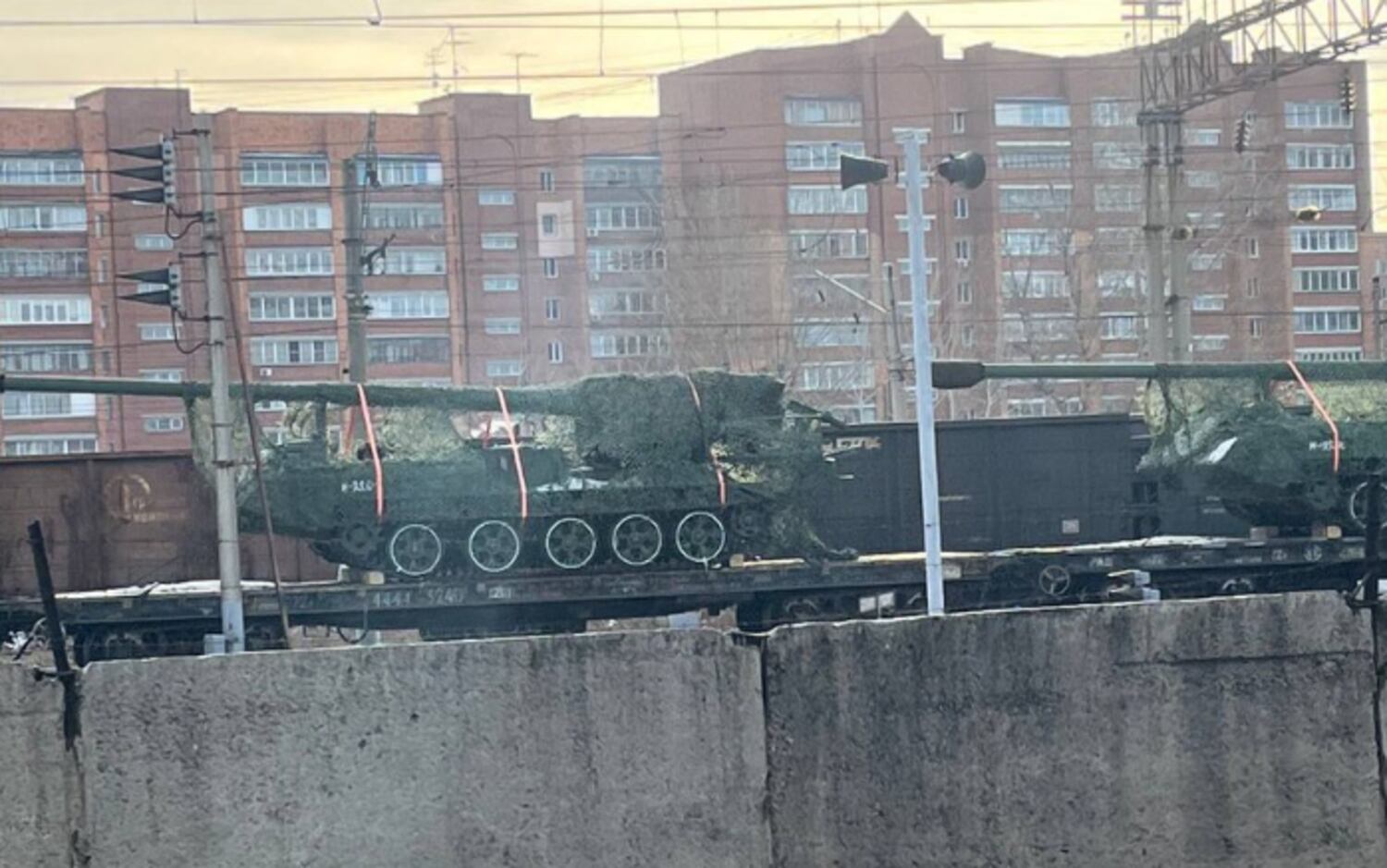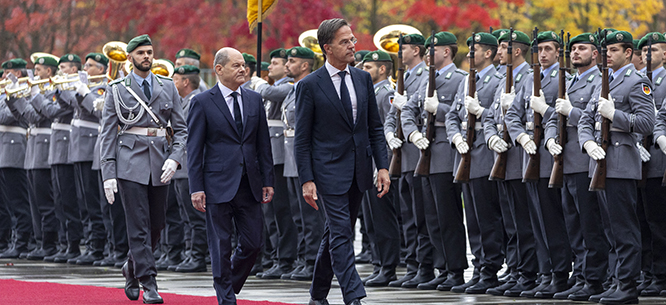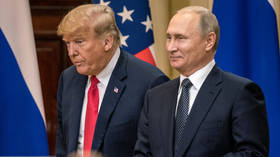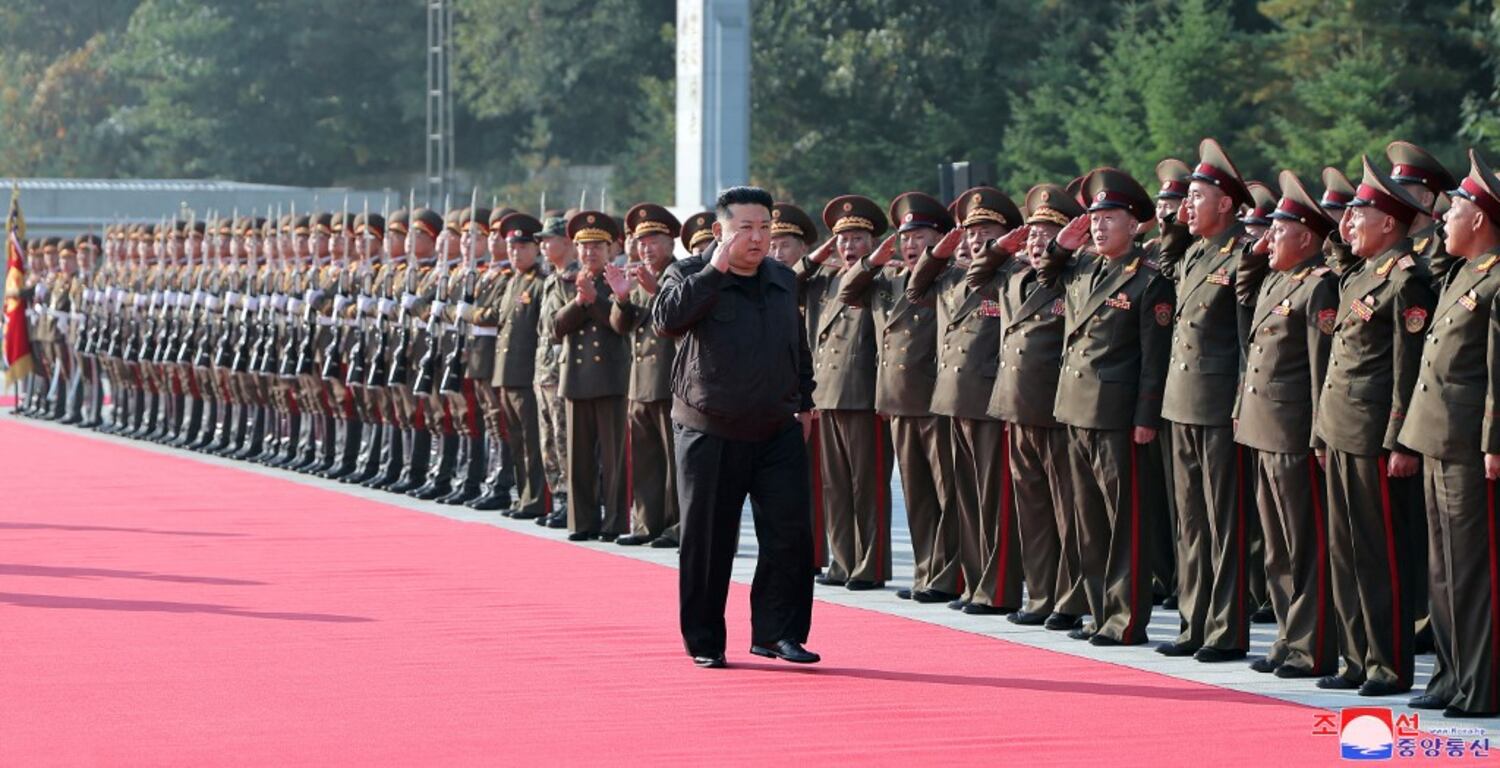
A boy sits in rubble in Gaza. Photo Credit: UNICEF
When Donald Trump takes office on January 20, all his campaign promises to end the war in Ukraine in 24 hours and almost as quickly end Israel’s war on its neighbors will be put to the test. The choices he has made for his incoming administration so far, from Marco Rubio as Secretary of State to Mike Waltz as National Security Advisor, Pete Hegseth as Secretary of Defense and Elise Stefanik as UN Ambassador make for a rogues gallery of saber-rattlers.
The only conflict where peace negotiations seem to be on the agenda is Ukraine. In April, both Vice President-elect JD Vance and Senator Marco Rubio voted against a $95 billion military aid bill that included $61 billion for Ukraine.
Rubio recently appeared on NBC’s Today Show saying, “I think the Ukrainians have been incredibly brave and strong when standing up to Russia. But at the end of the day, what we’re funding here is a stalemate war, and it needs to be brought to a conclusion… I think there has to be some common sense here.”
On the campaign trail, Vance made a controversial suggestion that the best way to end the war was for Ukraine to cede the land Russia has seized, for a demilitarized zone to be established, and for Ukraine to become neutral, i.e. not enter NATO. He was roundly criticized by both Republicans and Democrats who argue that backing Ukraine is vitally important to U.S. security since it weakens Russia, which is closely allied with China.
Any attempt by Trump to stop U.S. military support for Ukraine will undoubtedly face fierce opposition from the pro-war forces in his own party, particularly in Congress, as well as perhaps the entirety of the Democratic party. Two years ago, 30 progressive Democrats in Congress wrote a letter to President Biden asking him to consider promoting negotiations. The party higher ups were so incensed by their lack of party discipline that they came down on the progressives like a ton of bricks. Within 24 hours, the group had cried uncle and rescinded the letter. They have since all voted for money for Ukraine and have not uttered another word about negotiations.
So a Trump effort to cut funds to Ukraine could run up against a bipartisan congressional effort to keep the war going. And let’s not forget the efforts by European countries, and NATO, to keep the U.S. in the fight. Still, Trump could stand up to all these forces and push for a rational policy that would restart the talking and stop the killing.
The Middle East, however, is a more difficult situation. In his first term, Trump showed his pro-Israel cards when he brokered the Abraham accords between several Arab countries and Israel; moved the U.S. embassy to a location in Jerusalem that is partly on occupied land outside Israel’s internationally recognized borders; and recognized the occupied Golan Heights in Syria as part of Israel. Such unprecedented signals of unconditional U.S. support for Israel’s illegal occupation and settlements helped set the stage for the current crisis.
Trump seems as unlikely as Biden to cut U.S. weapons to Israel, despite public opinion polls favoring such a halt and a recent UN human rights report showing that 70% of the people killed by those U.S. weapons are women and children.
Meanwhile, the wily Israeli Prime Minister Netanyahu is already busy getting ready for a second Trump presidency. On the very day of the U.S. election, Netanyahu fired his defense minister, Yoav Gallant, who opposed a lasting Israeli military occupation of Gaza and had at times argued for prioritizing the lives of the Israeli hostages over killing more Palestinians.
Israel Katz, the new defense minister and former foreign minister, is more hawkish than Gallant, and has led a campaign to falsely blame Iran for the smuggling of weapons from Jordan into the West Bank.
Other powerful voices, national security minister Itamar Ben-Gvir and finance minister Bezalel Smotrich, who is also a “minister in the Defense Ministry,” represent extreme Zionist parties that are publicly committed to territorial expansion, annexation and ethnic cleansing. They both live in illegal Israeli settlements in the occupied West Bank.
So Netanyahu has deliberately surrounded himself with allies who back his ever-escalating war. They are surely developing a war plan to exploit Trump’s support for Israel, but will first use the unique opportunity of the U.S. transition of power to create facts on the ground that will limit Trump’s options when he takes office.
The Israelis will doubtless redouble their efforts to drive Palestinians out of as much of Gaza as possible, confronting President Trump with a catastrophic humanitarian crisis in which Gaza’s surviving population is crammed into an impossibly small area, with next to no food, no shelter for many, disease running rampant, and no access to needed medical care for tens of thousands of horribly wounded and dying people.
The Israelis will count on Trump to accept whatever final solution they propose, most likely to drive Palestinians out of Gaza, into the West Bank, Jordan, Egypt and farther afield.
Israel threatened all along to do to Lebanon the same as they have done to Gaza. Israeli forces have met fierce resistance, taken heavy casualties, and have not advanced far into Lebanon. But, as in Gaza, they are using bombing and artillery to destroy villages and towns, kill or drive people north and hope to effectively annex the part of Lebanon south of the Litani river as a so-called “buffer zone.” When Trump takes office, they may ask for greater U.S. involvement to help them “finish the job.”
The big wild card is Iran. Trump’s first term in office was marked by a policy of “maximum pressure” against Tehran. He unilaterally withdrew America from the Iran nuclear deal, imposed severe sanctions that devastated the economy, and ordered the killing of the country’s top general. Trump did not support a war on Iran in his first term, but had to be talked out of attacking Iran in his final days in office by General Mark Milley and the Pentagon.
Colin Powell’s former chief of staff, retired Colonel Lawrence Wilkerson, recently described to Chris Hedges just how catastrophic a war with Iran would be, based on U.S.military wargames he was involved in.
Wilkerson predicts that a U.S. war on Iran could last for ten years, cost $10 trillion and still fail to conquer Iran. Airstrikes alone would not destroy all of Iran’s civilian nuclear program and ballistic missile stockpiles. So, once unleashed, the war would very likely escalate into a regime change war involving U.S. ground forces, in a country with three or four times the territory and population of Iraq, more mountainous terrain and a thousand mile long coastline bristling with missiles that can sink U.S. warships.
But Netanyahu and his extreme Zionist allies believe that they must sooner or later fight an existential war with Iran if they are to realize their vision of a dominant Greater Israel. And they believe that the destruction they have wreaked on the Palestinians in Gaza and Hezbollah in Lebanon, including the assassination of their senior leaders, has given them a military advantage and a favorable opportunity for a showdown with Iran.
By November 10, Trump and Netanyahu had reportedly spoken on the phone three times since the election, and Netanyahu said that they see “eye to eye on the Iranian threat.” Trump has already hired Iran hawk Brian Hook, who helped him sabotage the JCPOA nuclear agreement with Iran in 2018, to coordinate the formation of his foreign policy team.
So far, the team that Trump and Hook have assembled seems to offer hope for peace in Ukraine, but little to none for peace in the Middle East and a rising danger of a U.S.-Israeli war on Iran.
Trump’s expected National Security Advisor Mike Waltz is best known as a China hawk. He has voted against military aid to Ukraine in Congress, but he recently tweeted that Israel should bomb Iran’s nuclear and oil facilities, the most certain path to a full-scale war.
Trump’s new UN ambassador, Elise Stefanik, has led moves in Congress to equate criticism of Israel with anti-semitism, and she led the aggressive questioning of American university presidents at an anti-semitism hearing in Congress, after which the presidents of Harvard and Penn resigned.
So, while Trump will have some advisors who support his desire to end the war in Ukraine, there will be few voices in his inner circle urging caution over Netanyahu’s genocidal ambitions in Palestine and his determination to cripple Iran.
If he wanted to, President Biden could use his final two months in office to de-escalate the conflicts in the Middle East. He could impose an embargo on offensive weapons for Israel, push for serious ceasefire negotiations in both Gaza and Lebanon, and work through U.S. partners in the Gulf to de-escalate tensions with Iran.
But Biden is unlikely to do any of that. When his own administration sent a letter to Israel last month, threatening a cut in military aid if Israel did not allow a surge of humanitarian aid into Gaza in the next 30 days, Israel responded by doing just the opposite–actually cutting the number of trucks allowed in. The State Department claimed Israel was taking “steps in the right direction” and Biden refused to take any action.
We will soon see if Trump is able to make progress in moving the Ukraine war towards negotiations, potentially saving the lives of many thousands of Ukrainians and Russians. But between the catastrophe that Trump will inherit and the warhawks he is picking for his cabinet, peace in the Middle East seems more distant than ever.
The post
Will Trump End or Escalate Biden’s Wars? first appeared on
Dissident Voice.
This post was originally published on Dissident Voice.





